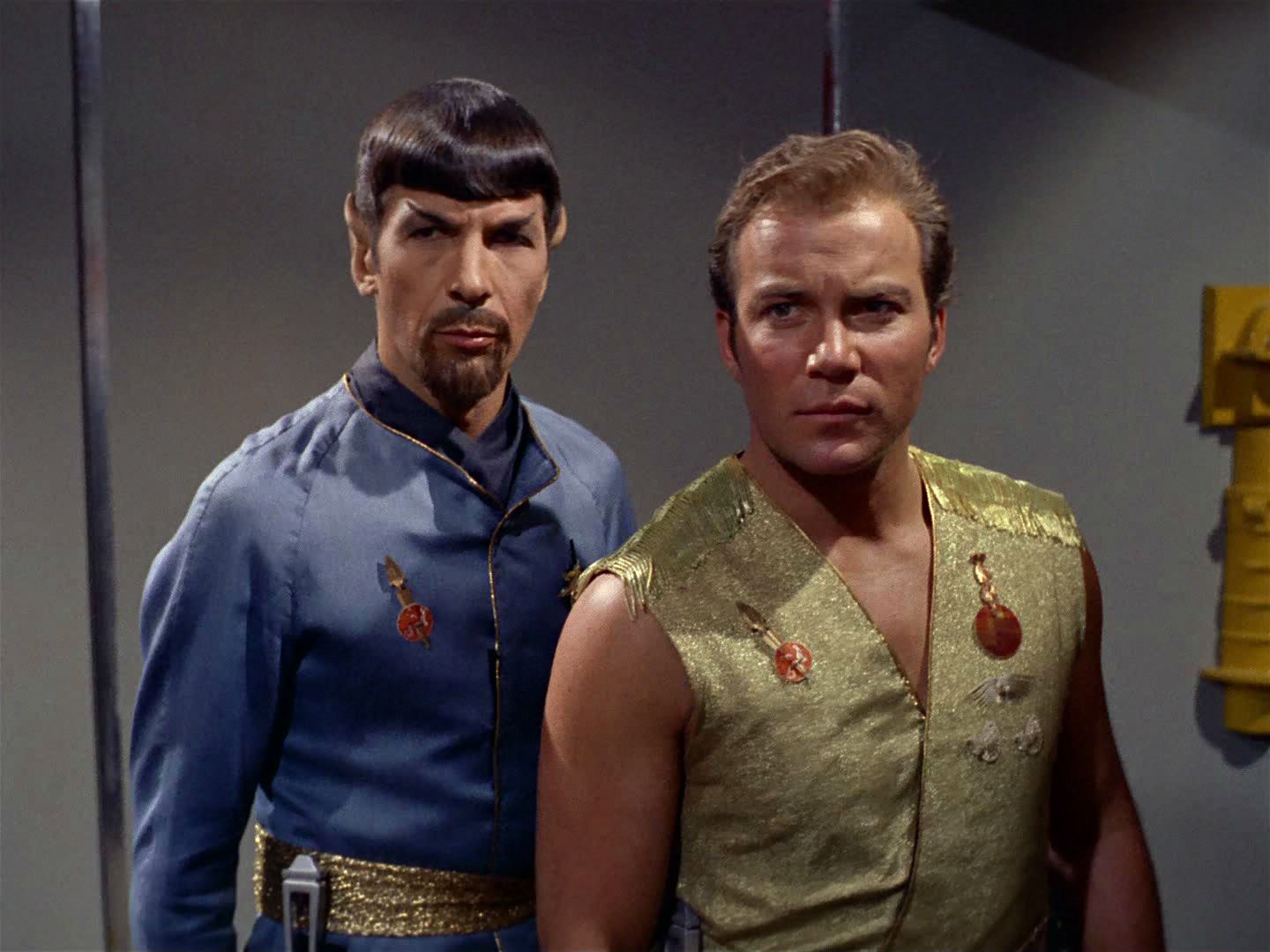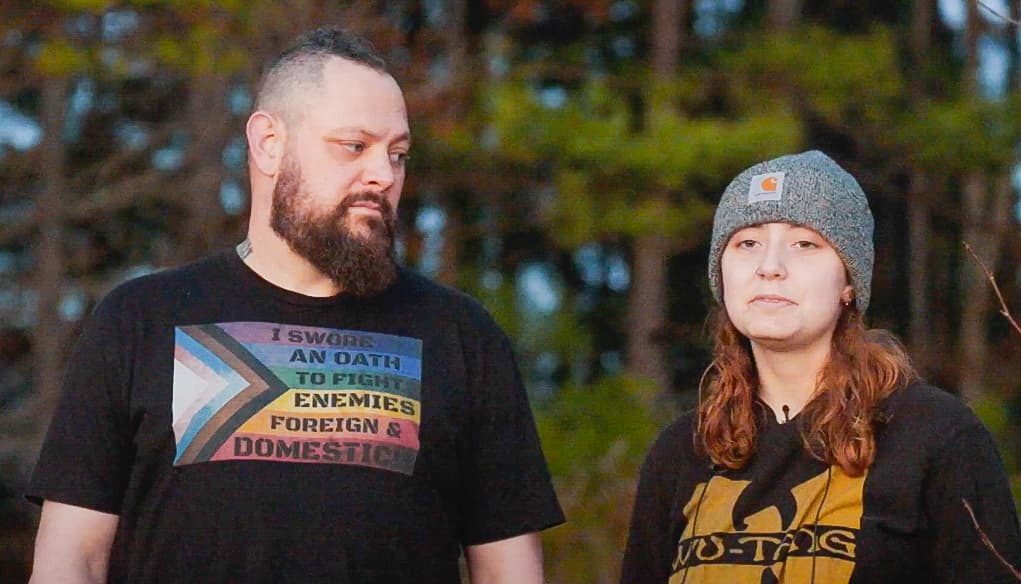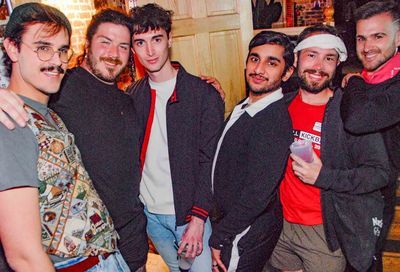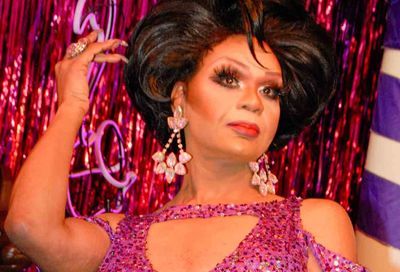Where Do We Fit?
Social conservatives on gay Americans and the new order
With the November elections five weeks past, people are finally turning away from electoral discussions. Who could blame the voters on the losing side if they would rather turn their attentions to their own lives for the next four years?
For gay Americans, however, there was a particular rub in the results. Voters in eleven states were given the opportunity to cast votes on same-sex marriage, the most far-reaching opportunity for voters to cast a vote on an issue directly targeting gays. And the outcome was less than friendly.
In all eleven states, the answer was — to varying degrees — that marriage is a union between one man and one woman. Even for those gay people who don’t much care about marriage, there’s little doubt that the clean sweep sent a powerful message, though the actual meaning of that message is uncertain. Does the majority want to push gay Americans back into the closet? Has the ship of state taken a sharp right turn, steaming quickly away from any sort of gay Mecca?
 |
What started as an immediate post-election punchline for some — emigrating to Canada — is actually happening on a small scale. Most gay Americans are staying put, but it’s easy to see why they may feel a bit vulnerable, wondering how they fit into this new political and social reality.
Some Washington Post readers saw evidence of this new reality on Nov. 28. Some issues of the Post carried an insert called Both Sides Magazine. The paid insert was edited by Derek Grier, founding pastor of Grace Christian Church in Woodbridge, Va. His magazine, which aims to “impact the culture with faith and reason,” impacted plenty of the region’s gay residents. (The socially conservative Washington Times carried the insert as well, though one could guess that Times readers were substantially less shocked.)
A main thrust of Both Sides was to assert that the modern gay civil-rights movement and the African American civil rights movement of the mid-20th century have nothing in common.
“Today pundits conveniently link racial identity with sexual desires,” Grier writes. “Many such commentators purport to be supporters of the African American community. However, if they really understood the average African American and were trying to champion our cause, they would not be so surprised by the pained looks on our faces when we hear them discuss the issue. We ask ourselves, ‘Where were the water hoses, attack dogs and midnight rides to terrorize the marriage registrants in Massachusetts and San Francisco?…
“Proponents of the homosexual lifestyle argue that as race is merely a byproduct of inherited genes, so is homosexuality. The weakness of this position is that people of color reproduce and pass on the DNA that makes the skin brown; however, homosexuals cannot reproduce. If homosexuality is a genetic trait and homosexuals were true to their orientation, the trait would have virtually disappeared over the ages. Nature does not perpetuate homosexuality.”
Reading Grier’s sentiments, including the questionable science, would likely rankle many (if not most) gay readers. That response seems to surprise Grier, who comes across not at all like a fire-and-brimstone zealot. Rather, Grier’s demeanor is calm, friendly, downright disarming.
“I have never seen such venomous and angry responses from any segment of the population as I did with the homosexual activist groups,” says Grier, adding that Both Sides generated hundreds of negative e-mail responses, including threats. “People are very frightened of the gay lobby. They’re very intimidating…. You can’t paint everyone in the homosexual movement with a broad brush. [But] many seem to be for free speech as long as it’s pro-homosexual. If you have a different position, then they don’t support freedom of speech.”
Grier’s interpretation of his faith holds that homosexuality has nothing in common with racial or ethnic traits — it is simply another sin. Accordingly, he takes the love-the-sinner approach.
“We are not anti-homosexual,” Grier insists. “Both Sides Magazine was very firm that the homosexual movement is not the same as the civil-rights movement, but we’re very firm that God loves the homosexual…. I think the challenge is that scripture is very clear about God’s intention and creation for the family. We believe that God intends for marriage to be a man and a woman. I can teach the philandering husband that it’s God’s will to be faithful, without being accused of hate. Now, suddenly, I’m accused of being hateful, and I think that’s irrational.”
Grier’s rationale might leave gay people scratching their heads, pondering their collective role as bullying a church that loves them. But Grier is a popular, charismatic pastor. His attitudes cannot be dismissed, as they find a wide audience weekly: He’s on PAX TV, Friday mornings at 7.
That’s not to say that everyone who opposes same-sex marriage opines from the pulpit. Maggie Gallagher is a nationally syndicated columnist who appears regularly in the National Review. She is also the president of the D.C.-based Institute for Marriage and Public Policy (IMPP).
Gallagher is a sharp debater. Her appreciation for dissecting a question runs deep enough that she allows Jonathan Rauch, the openly gay author of Gay Marriage: Why It Is Good for Gays, Good for Straights, and Good for America, a spot on IMPP’s Web site to offer a counterpoint.
For Gallagher, the marriage amendments seem to have little to do with organized religion or a spiritual view. They also have little to do with gays.
“After a year of making the argument in the public square, most people don’t agree with same-sex marriage,” Gallagher observes. “This is not an anti-gay thing. I don’t see those two issues as closely connected. A lot of people do, but I don’t. It’s not what you think of gay people, but what you think about marriage.”
Gallagher’s voice was one of the most prominent in the same-sex marriage debate leading up to the election. In May, shortly before the Massachusetts ruling in favor of same-sex marriage went into effect, Gallagher penned a related column. In it, she concluded that any victories on the road to same-sex marriage would not last.
“Same-sex marriage is not the future,” Gallagher wrote. “The set of ideas that lead a culture, a religion, a court to endorse same-sex marriage are simply not sustainable over the long haul. Europe, which gave us the idea of same-sex marriage, is a dying society, with birthrates 50 percent below replacement. Every mainstream Protestant sect that has endorsed sexual liberation (including homosexuality) is also dwindling away.”
Nevertheless, Gallagher advises gay people not to take the amendment votes personally. “I don’t think it’s a cultural shift about gay people,” she offers. “Many gay people saw this as a direct repudiation of them; many liberals did as well. I wouldn’t call it a backlash. I don’t think this was a showing of negative feelings. There is a disagreement here, clearly.”
Grier, on the other hand, does give some Nov. 2 credit to a perceived victimization of those who are not keen to see a country that includes all the rights gay-advocacy groups have pushed for.
“I think the general public feels a little bullied,” Grier says. “I think that’s why there was such a turnout. The problem is that in America, it’s very difficult to have a reasonable discussion about this issue. If you’re a pro-family person, you’re labeled a bigot, homophobic, a hate monger. Because of that, people are even afraid to talk about the issue. I think the election was the result of Americans feeling pushed around.”
The American Family Association enjoys a national audience like Gallagher, and a conviction of faith like Grier. The AFA joins the others in opposing same-sex marriage, but goes quite a bit further. It’s a powerful formula. Lest gay people be too fearful of this national organization, though, their literature is clear.
“Does AFA Hate Homosexuals?” is apparently one of the group’s “Frequently Asked Questions,” appearing as a question under “About Us” on the group’s Web site. “Absolutely not! The same Holy Bible that calls us to reject sin calls us to love our neighbor. It is that love that motivates us to expose the misrepresentation of the radical homosexual agenda and stop its spread through our culture. AFA has sponsored several events reaching out to homosexuals and letting them know there is love and healing at the Cross of Christ.”
Some gay people may wonder why the questions of gay people and sociology so often involve a large helping of Christian dogma. A poll in the current issue of Newsweek may help answer that. It’s full of fascinating data about Americans’ religious beliefs, all part of the magazine’s current issue focusing on the birth of Jesus. Conducted by Princeton Survey Research Associates during the first week of December, the Newsweek poll finds that 62 percent of participants favor teaching “creation science” along with the theory of evolution in public schools. Further, 43 percent favor chucking evolution and teaching only creationism. That’s compared to 40 percent opposed. The poll’s margin of error is three points. If this poll has a hint of accuracy, it is arguably surprising that much debate can be secular at all.
 |
Brian Fahling’s insights into Nov. 2 and the “homosexual agenda” are invaluable for gay Americans trying to make sense of how some portions of America perceive them. A senior policy analyst and senior trial attorney with the AFA’s Center for Law & Policy in Tupelo, Miss., Fahling, like Grier, saw the amendment sweep as America’s way to fight against a powerful gay-rights lobby. But like Gallagher, he says he’s not trying to read too much into it what the votes say about Americans’ views of their gay countrymen and women.
“My own view is this is not a cultural shift, but was an expression that was latent,” Fahling says of the clear win for the marriage amendments, echoing Gallagher before joining Grier in characterizing a gay movement that has bullied America. “The homosexual agenda has been well financed, well crafted. The rest of the nation wasn’t really able to respond.”
Fahling says that after same-sex couples started getting married in Massachusetts, as well as a handful of localities around the country, an opposed majority was just waiting for a chance to sound off.
“The effort to redefine marriage, I think that did tap into a latent response about where, in fact, the homosexual agenda was leading the nation,” he suggests. “That’s not really an organized shift or a change of mind. It was a fairly unified voice in opposition. It was a fair and just expression of what’s been present for some time.”
As with Grier, Fahling seems to resent instances when gay people have characterized as hateful the vote to maintain state-sanctioned marriage as a one woman-one man institution.
“My concern is that many would define it as bigotry,” says Fahling. “I would chuckle if I didn’t consider those such grave accusations. This is the one institution around which civilizations are not only formed, but given life. The charge of bigotry is an astonishing assault.”
Although the AFA attempts to deflect any charge of bigotry with its FAQ answer, the question obviously wouldn’t have made the list if it were not asked frequently. But the question is an obvious one, considering that AFA is always busy working to counter the “homosexual agenda.” The group is currently leading a boycott of Procter & Gamble for the company’s advertising support of Will & Grace and Queer Eye for the Straight Guy.
The boycott petition reads, in part: “Queer Eye for the Straight Guy depicts five homosexual men remaking the ‘cluttered, straight men of the world’ so that they look, dress and act in the manner of the ‘cool’ and, by implication, superior ‘gay’ community. The program consistently seeks to validate and glorify the homosexual lifestyle.”
A Christian right boycott of P&G doesn’t necessarily make headlines. Neither Will & Grace nor Tide, Crest and Pampers appear headed for oblivion. But just as the collective voice against gay marriage may leave many gay Americans licking their wounds, the same events can be empowering for those on the winning side.
Fahling says the call to become more politically involved is stirring many Americans to come out and support conservative values and issues. “There has been a politicization of morals,” says Fahling, suggesting that issues like same-sex marriage would not have even been on the table a few years ago. He says that while a left-wing agenda treats morals as a disposable commodity with variable value, social conservatives “treat them as something of value, enduring at all times. History and common sense testify to the wisdom of what we would call ‘traditional family values.'”
Whether Fahling sees room for gay Americans within those values is open to interpretation.
“I think much more has been gained than I would’ve thought appropriate,” Fahling says of gay civil-rights advances made in the United States. “Let me clarify that people have constitutional rights as human beings that should be offered to everyone. I would always advocate for the constitutional rights we all possess, irrespective of who we are. That pertains to every community. I wouldn’t take away what’s been there.
“The subtle gains were acceptable, but now you’re attempting to reconstitute us as a people. Be an individual, be a citizen, but don’t attempt to create a world that has never existed anywhere, where homosexuality is normal. Deal with it at a private level.”
Fahling reckons, however, that gay-advocacy groups won’t be taking his advice. Still, he posits that time is on his side of the debate.
“There may be a regrouping and a rethinking,” Fahling says, responding to how gay groups may be responding to Nov. 2. Once new strategies are in place, though, Fahling guesses the end goals will be the same.
“I would describe that end as gaining access to the institution of marriage, to have homosexuality received as normative,” Fahling says. “I think they tried to advance far too swiftly, and they attempted to gain in the courts what they could never accomplish in the legislative arena. And I think that built resentment. There may be a slower, more methodical approach, to allow time to fill in the gaps, to have hearts and minds changed over the longer goal….
“I’m not convinced they’ll ultimately be successful,” Fahling concludes, saying that for gay Americans to be fully integrated into American society, they’ll have to trump the “nature of man.” In other words, it’s an ultimate winner-take-all battle between civil rights and procreation. “I don’t regard the long-term prospects of the homosexual movement are very cheery for them.”
Grier seems less certain of what the outcome of the struggle for gay equality may be. He says that discrimination will likely continue as long as mankind does, but says we should work to diminish it. Meanwhile, he hopes to be able to continue to call things as he sees them, as part of a discussion, rather than a slugfest.
“From my experience, I’ve been lashed out against,” complains Grier. “What concerns me most is the tenor of the debate. When you disagree with the leadership of the homosexual movement, you’re branded awful names. In the ’60s, there was bigotry, but if we went around calling white people ‘honkies,’ it would’ve been counterproductive. I would hope to have this debate without all the name calling.”
As gay Americans look around the country, as major gay-advocacy groups say its time to take the message of equality and inclusiveness to the “red states,” is there common ground to be found? Can gay rights in the Bible belt make it past Atlanta or the student coffeehouses in Memphis? Will Americans amend the Constitution to keep gays out of marriage? America is still a big country, but it’s not as big as it used to be. The path gay Americans will clear for themselves in this polarized nation during the next few years is anybody’s guess.
Support Metro Weekly’s Journalism
These are challenging times for news organizations. And yet it’s crucial we stay active and provide vital resources and information to both our local readers and the world. So won’t you please take a moment and consider supporting Metro Weekly with a membership? For as little as $5 a month, you can help ensure Metro Weekly magazine and MetroWeekly.com remain free, viable resources as we provide the best, most diverse, culturally-resonant LGBTQ coverage in both the D.C. region and around the world. Memberships come with exclusive perks and discounts, your own personal digital delivery of each week’s magazine (and an archive), access to our Member's Lounge when it launches this fall, and exclusive members-only items like Metro Weekly Membership Mugs and Tote Bags! Check out all our membership levels here and please join us today!






















